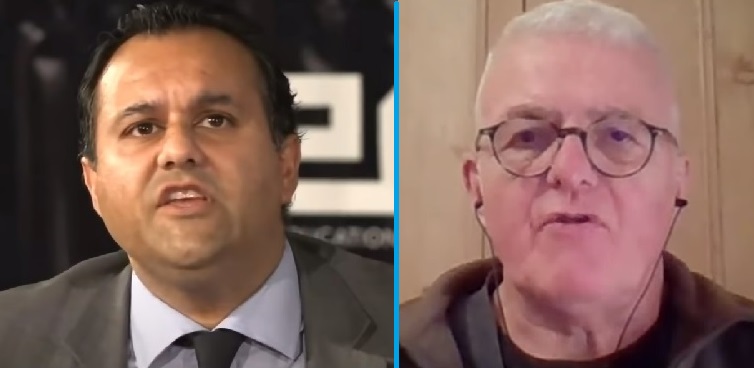A long-awaited review of the U.K. government’s counter-terrorism strategy, “Prevent,” has reignited badly needed discussion about the threat of Islamism in the United Kingdom. William Shawcross, former head of the Charity Commission who authored the report, declared the controversial program established in the early 2000s in an attempt to counter political radicalization, is “broadly right in its objectives, admirable in its intentions” and that it “fulfils many of its functions to good effect.”

There are problems with the program, Shawcross reported. In addition to overemphasizing the threat of right-wing extremism in the UK at the expense of a proper focus on Islamism (a problem previously documented by the Henry Jackson Society), the program has been the target of Islamist groups seek to delegitimize the campaign and attack Muslims working to make it effective. To make matters worse, Islamists who have received funding from the program have in fact promoted Islamist extremism.
In one case, Shawcross found an imam to have made statements sympathetic to the Taliban as well as Hamas, a proscribed terrorist group, describing the two groups as “legitimate resistance groups.”
The imam in question, Dr. Musharraf Hussain, founded the Karimia Institute, a charity which administered Prevent-funded projects between 2008 and 2010. In 2021, during an appearance on a British Muslim television channel, Hussain is alleged to have said Prevent was “targeting” the Muslim community, in a manner that is “uncharacteristic of democracy” and has “bad intentions.”
Prevent isn’t racist and Islamophobic.
Fiyaz Mughal, founder of Muslims Against Antisemitism
Additionally, Shawcross also discovered a campaign by Islamist groups, and others, that sought to delegitimize the counterterrorism strategy and attack those working within and supportive of it. However, not all Islamist groups were included in the review for fear that the government could be taken to court for libel. Prevent Watch, a community group that supports victims of the programme, sent a formal letter to the Home Office threating it with legal action should it be named as one of the organisations. Speaking to the Canary, a far-left publication, director of Prevent Watch Dr. Layla Aitlhadj called on Prevent to be scrapped in its entirety and for “pre-crime” policies embedded across institutions to be undone.
The report has directed attention to the threat of Islamism in the UK — and hopefully the West in general — with UK Home Secretary Suella Braverman accepting all 34 recommendations made by its author. It has also vindicated critics who had previously warned the public about the problems it documented, most notably the Islamist campaign to undermine its effectiveness and the fact that some Islamist groups have themselves received funding under Prevent auspices.
Two counter-terrorism professionals vindicated by the Shawcross report are Fiyaz Mughal, founder of Muslims Against Antisemitism (MAAS) who quit his post as a Prevent official in protest of efforts to undermine the program’s effectiveness and Professor Steven Greer, former lecturer at Bristol University and outspoken counter-Islamist, who had been harassed and bullied by British Islamists for years. Both applauded the report, which affirmed concerns they had been raising.
Mughal, who served as a member of Prevent’s advisory board in the east London town of Redbridge, resigned from his post in 2019 after a member of the Islamist organisation Muslim Engagement and Development (MEND) — which had called for Prevent to be scrapped — was offered a position on the board.
“It was breath-taking to see that officers in Redbridge had invited a representative from MEND to sit on the Prevent Advisory Board when the group has actively and consistently sought to undermine confidence in Prevent,” Mughal told Focus on Western Islamism (FWI). “The Shawcross review has proved that the stance I took of resigning and walking away from the Board was the right one.”
Professor Steven Greer, who has been the target of ongoing harassment on false charges of “Islamophobia,” told FWI that the Shawcross report was spot-on in its assessment that Islamist groups tried to undermine the organization’s operations.
“In my experience this is absolutely true. The anti-Prevent narrative dominates the humanities and particularly law and the social sciences in British universities.”
Islamists at Bristol University were highly organised and managed to attain support from publishers to block academic research and insights into Prevent by branding it racist and Islamophobic, Greer said.
“One consequence is that it’s very difficult to get anything published which challenges [this assessment of Prevent],” he said, adding that when he and a colleague got an article about Prevent published in Public Law, a respected law journal, in 2018, the two authors were denounced on social media as racist and Islamophobic, in one instance by a colleague on the faculty at Bristol University.
“The argument goes like this: ‘Prevent is racist and Islamophobic. Therefore, anyone who claims it isn’t must themselves be racist and Islamophobic’!” Greer said.
Both Mughal and Greer assert that those receiving government funds to prevent individuals being drawn into radicalisation, must be closely monitored. That some of these groups are Muslim led, does not mean the act of monitoring them is “Islamophobic.”
“It is essential that officers carry out due diligence when working with groups,” Mughal said.
Mughal sees Braverman’s acceptance of the report’s recommendations as a promising first step toward a crackdown on Islamist organisations who actively undermine Prevent and those who are government funded but support extremist ideologies and groups. Greer accepts Shawcross’ findings and reiterates the point that he has been making for a number of years.
“Prevent isn’t racist and Islamophobic,” he said.
Wasiq Wasiq is a journalist specializing in defense and terrorism. You can follow him on Twitter: @WasiqUK
